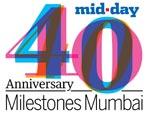The best of trends across four decades that turned food, music, health, and literature on the head thanks to the talent of local visionaries, mapped and dissected in this section
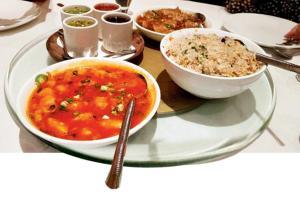
ADVERTISEMENT
Chindian cuisine becomes a force to reckon with
In 1984, when veteran restaurateur Nelson Wang opened China Garden in Kemps Corner, it changed eating out in Mumbai. It was the first of its kind — the only fancy diner outside of a five-star.
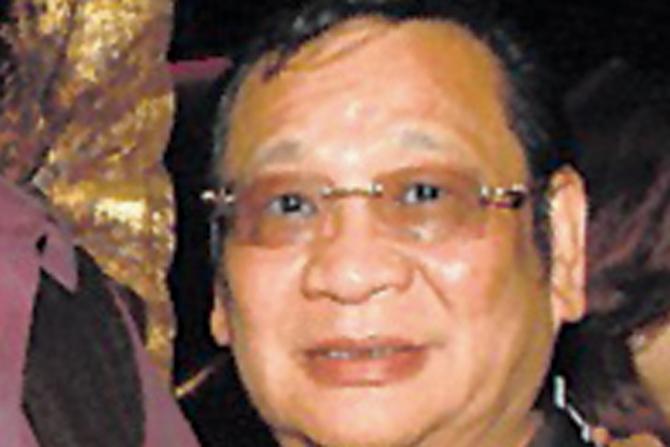
Wang was also the man behind fascinating dishes influenced by the East, but tweaked to suit the Indian palate. Like the popular chicken Manchurian and to some extent, prawns in orange sauce and duck pancakes, that became staples at Asian eateries that followed.
Miracle emerges from a test tube
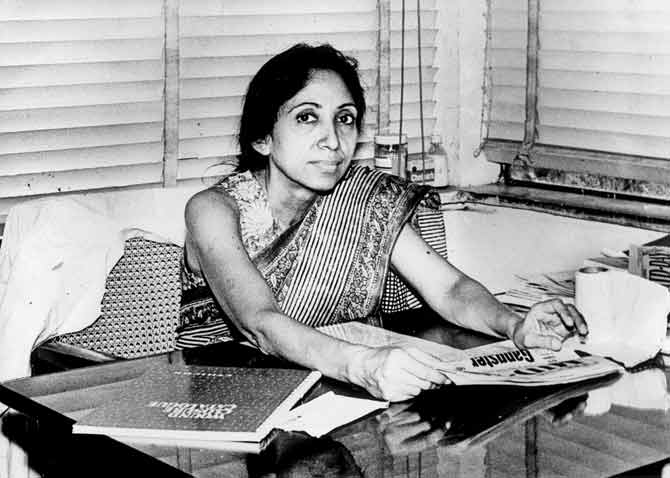
On August 6, 1986, Harsha Chawla became India's first ever test-tube baby. Dr Indira Hinduja created history by becoming the first Indian doctor to deliver a test-tube baby. Three years of pioneering research by her in the field of invitro fertilisation and embryo transfer have given thousands of childless couples in India hope.
Juhu gets theatre's Mecca
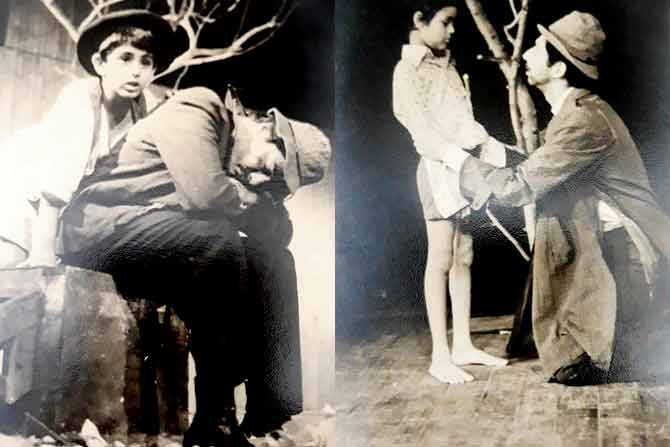
(From left) Benjamin Gilani as Estragon and Akarsh Khurana as the boy in Waiting for Godot; Naseeruddin Shah as Vladimir with Sagar Arya as the boy in Waiting for Godot
Two milestones in theatre were born around the same time as mid-day — Juhu's Prithvi Theatre (1978) and the coming together of Benjamin Gilani, Naseeruddin Shah and Tom Alter to start their theatre company, Motley (1979). When Gilani happened to see the blueprints of the Juhu venue, he asked Jennifer Kendall about the feasibility of the idea. "I don't know. Take it. It's yours," was her response, and since then, the venue has been just that, a mecca for theatre practitioners, including Motley. It was with the support of Om Puri's company Majma that Motley was launched. And the first play to be staged under the banner was Waiting for Godot.
The time to disco
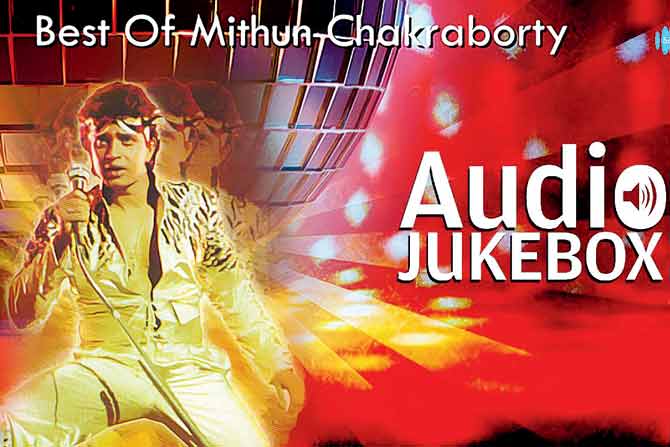
The 1970s was the era of disco across the world, and Mumbai caught up in the '80s, spawning discotheques, the first of which was the immensely popular Studio 29. The Marine Drive outpost was modelled after Studio 54, a famous New York club, and embodied a carefree, bohemian atmosphere. The place lasted only five years, but left behind a legacy. Bollywood hits like Disco Dancer and Qurbani furthered the hype around this genre.
A home for rock
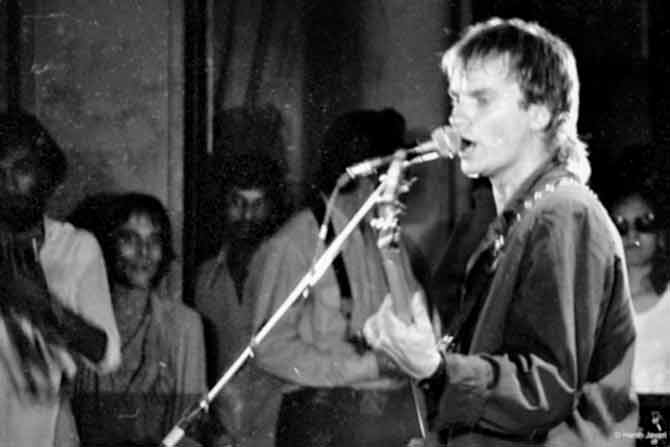
Pic Courtesy Hersh Javeri
Something happened in 1980 that had never happened before. The city's first international rock concert was held at Rang Bhavan in Dhobi Talao, featuring legendary band The Police. The gig took place thanks to a group of senior Parsi women who ran a charity called Time and Talent Club. But they didn't imagine the crowd they would have to contend with, including those who slid down the drainage pipe of a nearby college to enter the venue.
A fire stirs a movement
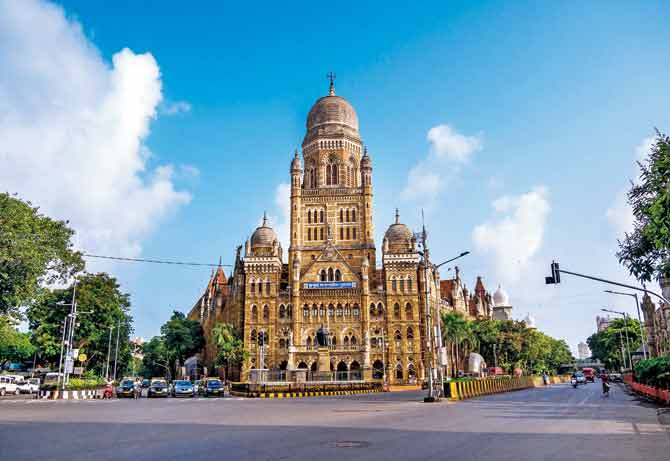
The BMC Corporation Hall that was damaged in a fire was restored to its original glory in 2001 by INTACH Mumbai Chapter. This effort ensured that they won the Indian Heritage Society Urban Heritage award in 2001. It was after this monumental effort that the heritage cell was established within the civic body, MCGM, and paved the way for the restoration of the Dr Bhau Daji Lad Museum and renovation of the KEM Hospital OPD.
Literary gurus find fame
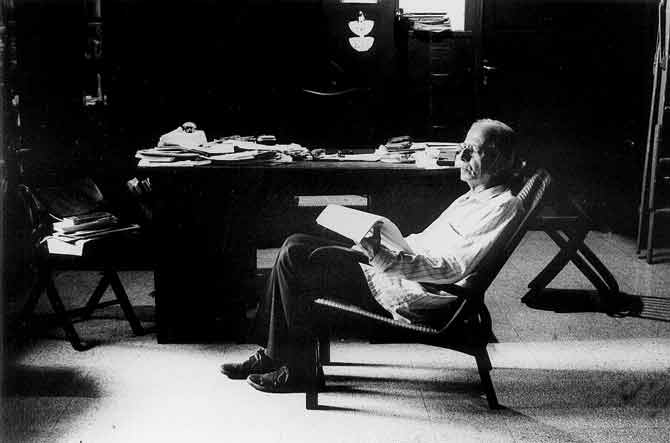
Nissim Ezekiel
In 1981, Salman Rushdie's Midnight's Children won the prestigious Man Booker Prize. But back home, Nissim Ezekiel, often called the father of modern Indian English poetry, was being mentor to several young poets. Following founder and theosophist Sophia Wadia's death in 1986, Ezekiel took over as the editor of The Indian PEN. He won the Sahitya Akademi Award in 1983 for a collection of poetry titled Latter-day Psalms. Then in 1988, the President of India presented him with the Padma Shri for his contribution to Indian literature in English.
Finding the word with Sabira
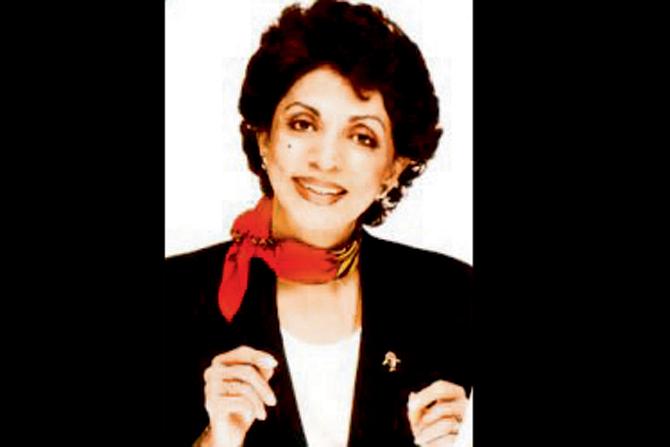
Bombay Doordarshan was launched in 1979 and with it, viewers got a taste of its first ever English language quiz called What's The Good Word? The eloquent and irrepressible Sabira Merchant was host. The idea was theatre and ad personality Adi Marzban's, and the show ran for 15 years.
Heritage lift for Kala Ghoda
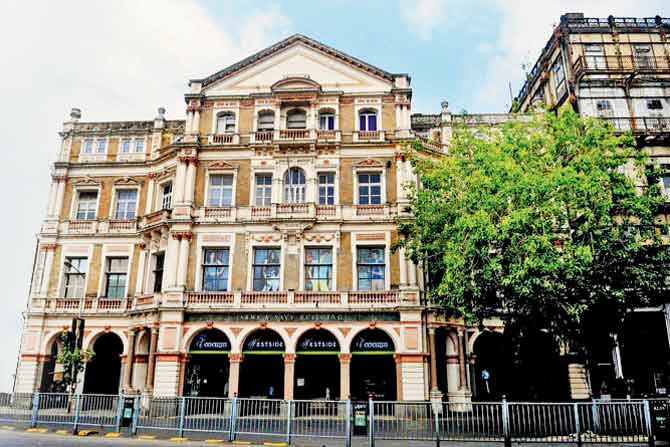
The Army & Navy Building, a Grade IIA structure owned by Tata Sons Ltd., became the first tenanted commercial building to be restored completely in 1998. This was done to celebrate 50 years of India's Independence. This paved the way for the Kala Ghoda Association movement, and the subsequent festival that got underway. Soon, the David Sassoon Library, the Elphinstone College also underwent restoration, thus giving the sub precinct a new lease of life with the thrust on sensitive conservation of the city's heritage.
Enter the multi-brand store

The fashion fraternity in Mumbai will remember the 1980s as the decade that witnessed the launch of India's first multi-brand store, Ensemble, by Tarun Tahiliani, his sister Tina Tahiliani Parikh and late designer Rohit Khosla, opened here in December 1987. This changed the fashion scene in the country as it introduced the concept of multi-fashion designer stores. Before this, the fashion fraternity included homemakers getting creative with neighbourhood tailors. Ensemble hiked up the price of garments from Rs 500 to Rs 5,000, eventually leading to the birth of couture.
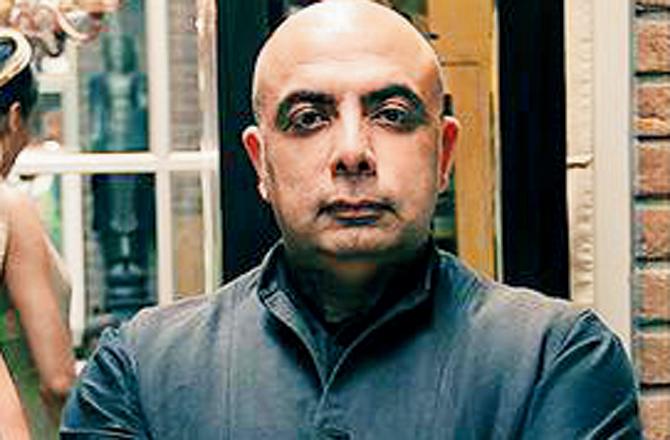
When jazz hit the right note
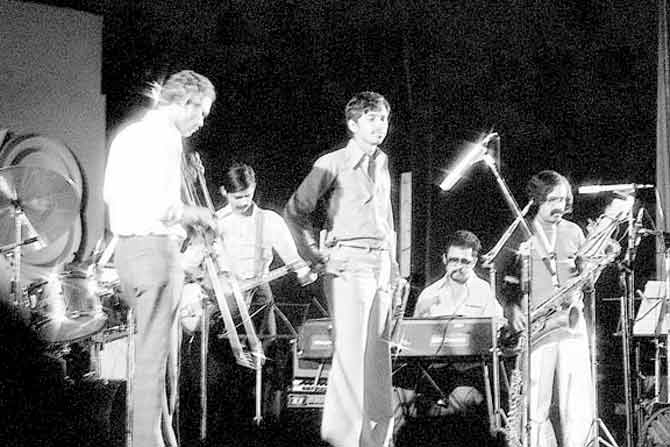
Jazz Yatra was an event that gave the city major bragging rights. Thanks to Air India and various consulates, the music festival saw some of the biggest names in global jazz music perform live, including Joe Williams, Sonny Rollins, Sadao Wattanabe and Don Ellis. It was held annually from 1978 to 2004. The memories it left behind continue to be discussed.
Losing weight with Ramma Bans
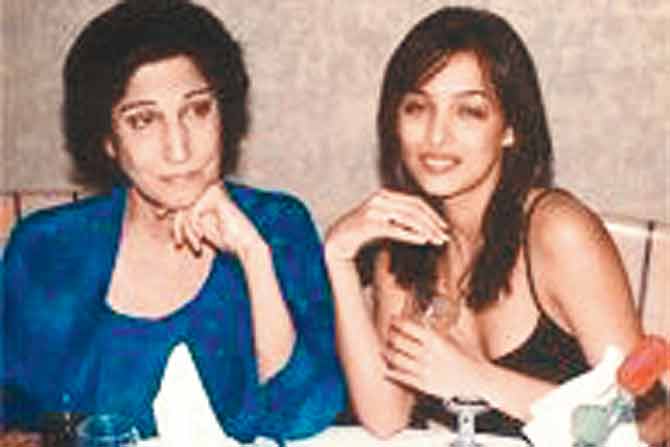
The late Ramma Bans introduced aerobics and weight loss programmes to Mumbai when she started the country's first health club and fitness centre in 1962. She introduced the idea of aerobics and yoga to Bollywood, and then the rest of India. Rekha was one of her first students and her clientele rose rapidly in the 1980s. Soon, she was training Dimple Kapadia, and beauty pageant participants including Sushmita Sen, Rani Jeyaraj and Yukta Mookhey. The Cuffe Parade resident held sessions at the Taj that were all the rage.
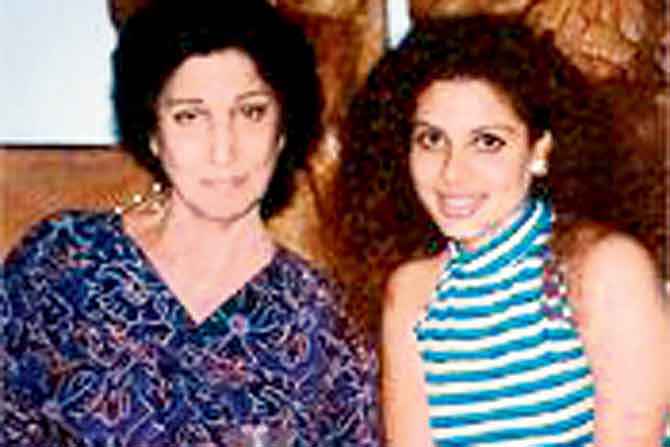
Courting food inside a mall
The first mall to have opened in Mumbai was Crossroads at Haji Ali in 1999. The chaos at the traffic junction while everyone literally tried to get a foot in the door in the first week, was akin to hysteria. While the mall itself attracted hundreds of Mumbaikars, the food court it housed drew double. It was the first time that a variety of cuisines were available under one roof for the family.
Contemporary dance goes desi
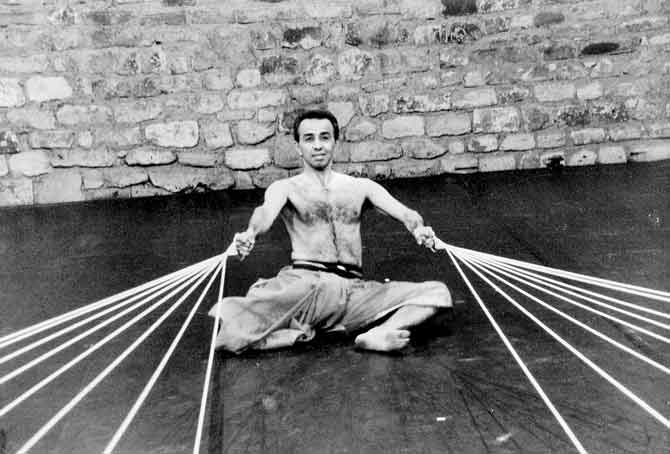
A turning point in ace contemporary dancer-choreographer Astad Deboo's career came in 1986, when he was commissioned to choreograph for Maya Plisetskaya, the prime ballerina of Bolshoi Theatre ballet company. This coincided with the place the genre came to occupy in the country's cultural scene, with Mumbai taking the lead in presenting contemporary dance performed by Indians. The Elephanta Festival, the inaugural edition of which was held in 1989, presented Deboo's choreography.
Here comes the literary festival
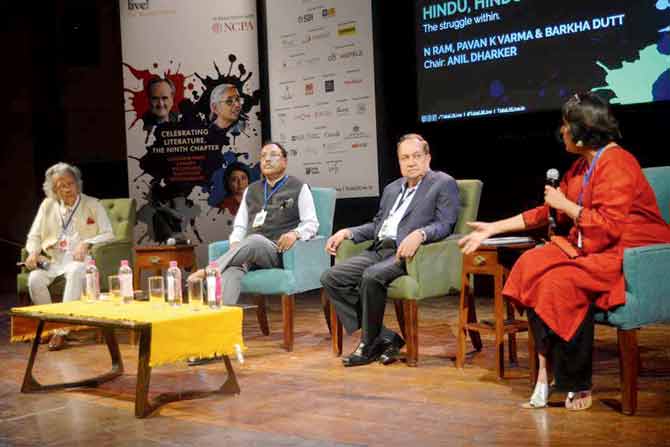
In Rajasthan, the now so-called greatest literary show on Earth kicked off in 2006. But in Mumbai, the same seed was just beginning to germinate. A larger initiative began in 2010, when Tata Lit Live! helmed by former m-day editor Anil Dharker, launched. It has since taken place every winter at the National Centre for the Performing Arts (NCPA) at Nariman Point, and hosted the likes of Ben Okri and Amitav Ghosh.
Power to the suit
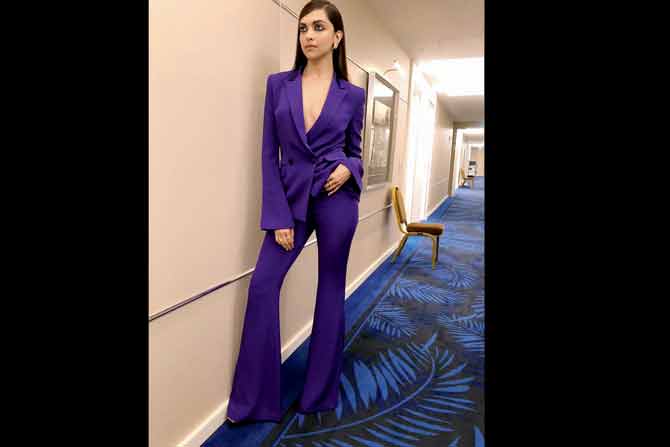
Power dressing became a thing as women began to assert themselves with shoulder pads and pant suits. The '80s saw the emergence of sharper, stronger silhouettes for women, while men's fashion embraced a softness that was reminiscent of slouch chic. Hema Malini and Neetu Singh were the first to sport it on screen, followed by Rekha and Dimple Kapadia.
LOL like us
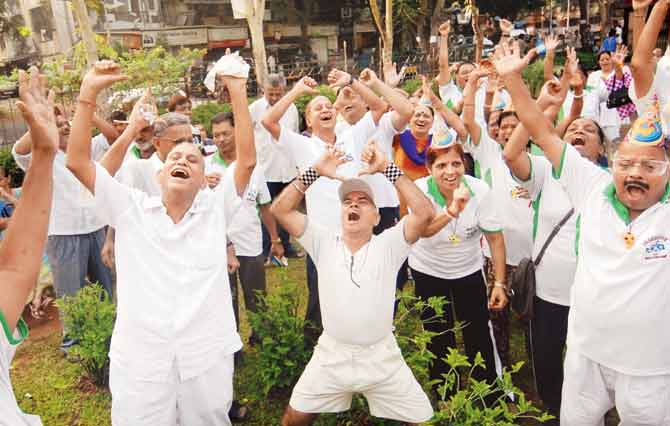
Called the Merry Man of India, Dr Madan Kataria was responsible for making people laugh a lot more than they did. One time editor of a health magazine, Your Own Doctor, he is regarded as the pioneer of laughing clubs in India. In March 1995, he started the first Laughter Club with just five people, using what he termed 'laughter yoga' as a means to stay positive. Today, there are over 20,000 clubs across 102 countries.
The fastest food
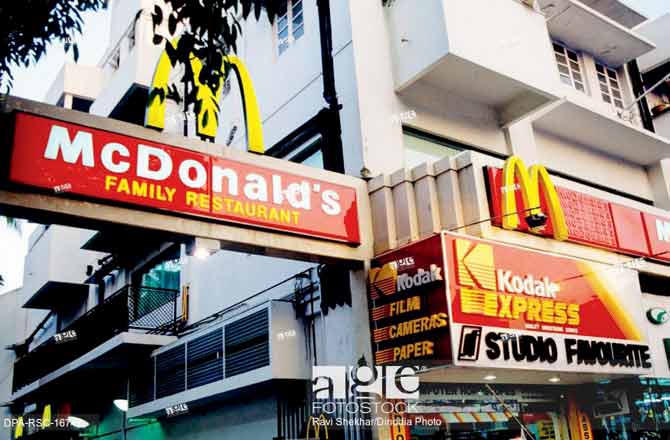
A Japanese restaurant inside a five-star, Irani cafés, a handful of Indian haunts, and some seafood joints and udipis comprised the broad template when it came to eating out in Mumbai. This was until 1996 when McDonald's opened its first outlet on Bandra's Linking Road. With its newness, affordable prices and alluring offers (Happy Meals), it drew in the crowds. Junk food favourites like Pop Tates came after.
Editorialising the city
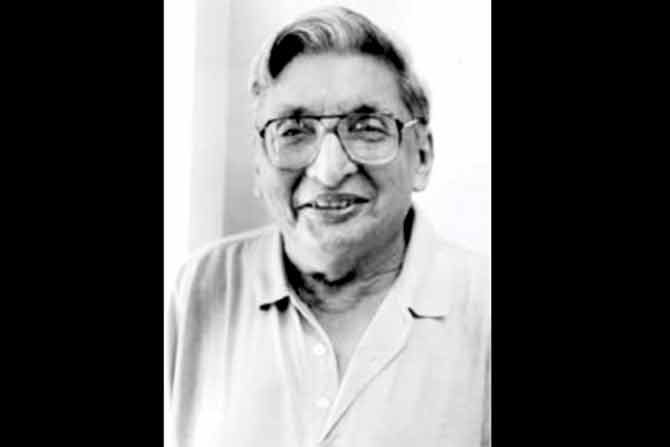
One of mid-day's original core team members, Behram Contractor or Busybee's hugely popular daily column Round and About began with the Evening News of India in 1966, moved to mid-day in 1979, and came to stay with The Afternoon Despatch & Courier after 1985. It was one of the city's most followed editorial columns, and gave the city a veteran journalist who is often called the Art Buchwald of India.
Bombay gets its own shopping hub
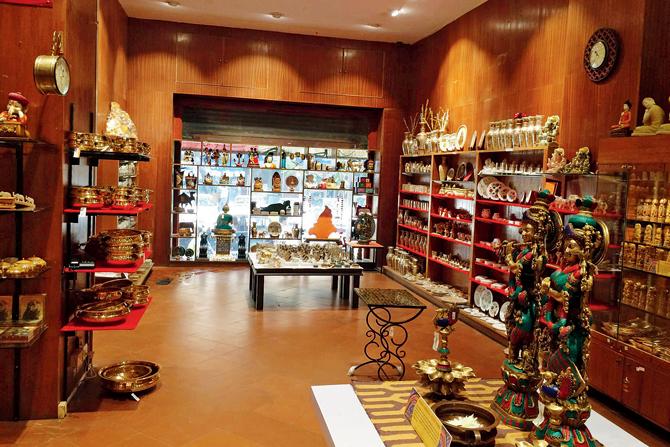
The idea for a Bombay Swadeshi Cooperative Stores Company was conceived by national leaders Bal Gangadhar Tilak, Dadabhai Naoroji and industrialist Jamsetji Tata on December 14, 1904. The store at Fort was a shopper's delight for Indian hand-woven fabric, handicrafts, woollens, furnishings and linen. In the early days, there were 12 such stores; each outlet located on the famous Mahatma Gandhi Roads all over India. In 1995, the Mumbai branch underwent a major facelift, and was rechristened The Bombay Store. However, the idea behind the store remained intact.
A hit machine
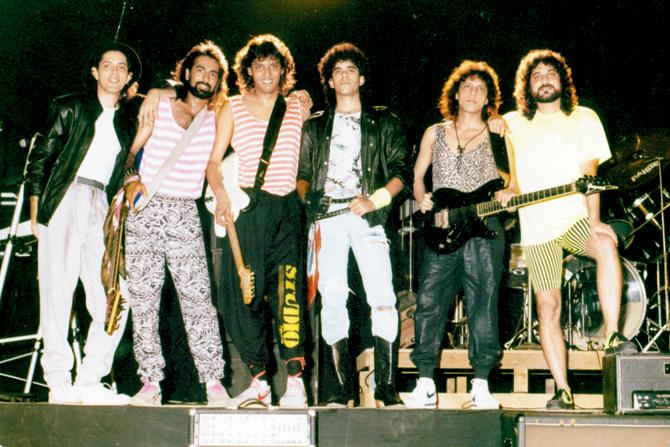
Rock Machine's impact after it was formed in 1984 cannot be emphasised enough. They were the first Indian band to release an original English album. But the act took a different turn a decade later, refining their sound. They returned as Indus Creed in 1993. That year, they received the biggest accolade that any outfit from India had received till then, when they won the Asian Viewer's Choice Award at the MTV Video Music Awards. Indus Creed disbanded on amicable terms at the end of the decade. But the good news is that they are back together.
Moonlighting with Michael
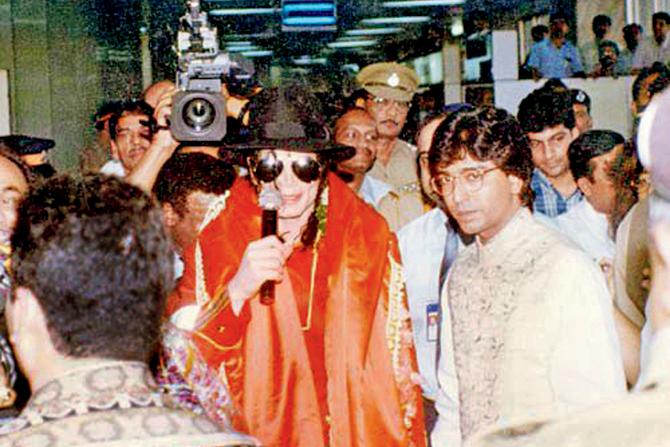
When the world's biggest entertainer, Michael Jackson performed here on November 1, 1996, the 35,000-odd crowd at Andheri Sports Complex, comprised of screaming teens and their equally hysterical parents. From a navvari-draped Sonali Bendre greeting MJ at the airport to him gracing the loo at Matoshree en route to his SoBo hotel, every move he made was the stuff of urban legend.
Coffee cool stop
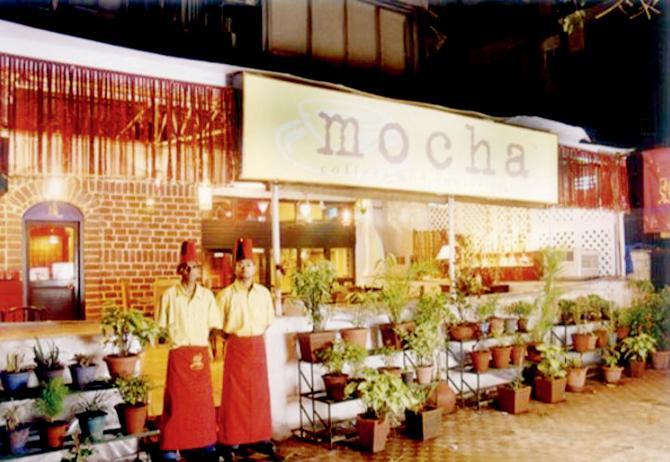
In August 2001, when Mocha launched, it was a place where the youth could chill for hours over a cuppa. Prior to that, you'd have to buy a coffee inside a five-star. The coffee-drinking culture, as we know it, began with Riyaaz Amlani's Churchgate outlet. He was also the first to introduce hookahs. Barista and Cafe Coffee Day followed in the years to come, until another seismic shift took place leaving us sipping on organic and special coffees at outlets like at Blue Tokai and Koinonia.
Walk and talk
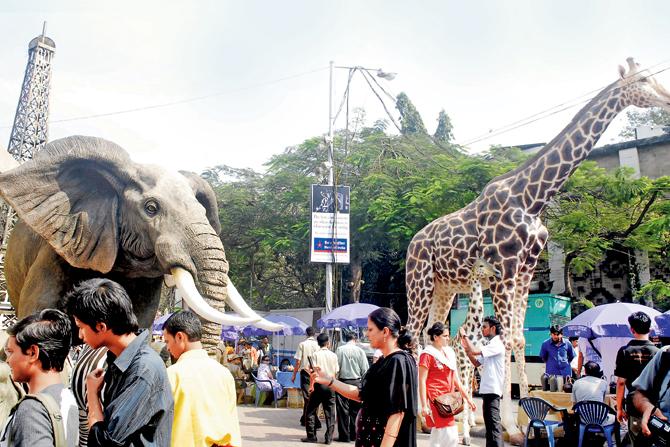
On October 30, 1998, the Kala Ghoda Association (KGA) was formed by Shirin Bharucha, Saryu Doshi and Jamshed Kanga, who organised the Kala Ghoda Arts Festival the following year. Heritage walks were held in the precinct by young architects Abha Bahl and Brinda Gaitonde-Nayak in association with Rahul Mehrotra and late historian Sharada Dwivedi. They released the now iconic book, The Fort Walks, a compilation that mapped 10 walks, 30 to 40 minute strolls across the old part of Bombay, interspersed with nuggets of history.
Freedom to rock
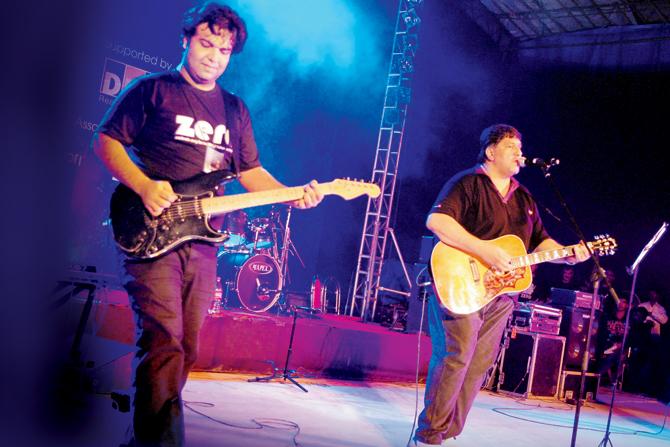
Rock music got a major fillip with Independence Rock, or I-Rock that started in 1986. Its roots lay in a move by the principal of St Xavier's College who cancelled a gig, and bands The Savages and Mirage going ahead with the show at nearby Rang Bhavan. The event came together thanks to musician Farhad Wadia, who turned it into a full-fledged festival. Over the years, it gave a platform to local and national bands.
Vegan is the way
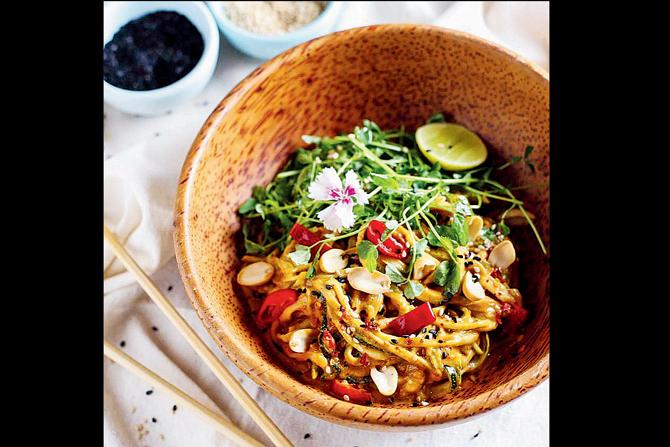
One could very well argue that the roots of many eating fads, whether veganism, or more recently, intermittent fasting, can be traced to desi culture. The Pantry in Kala Ghoda opened in 2012, and was among the first to dedicate entire sections of its menu to healthy eats. Birdsong Cafe in Bandra opened the same year. Both eateries became a refuge for Mumbai's vegans. Today, of course, gluten-free and keto dishes are ubiquitous, with every third eatery offering diet-centric meals.
Hope, a call away
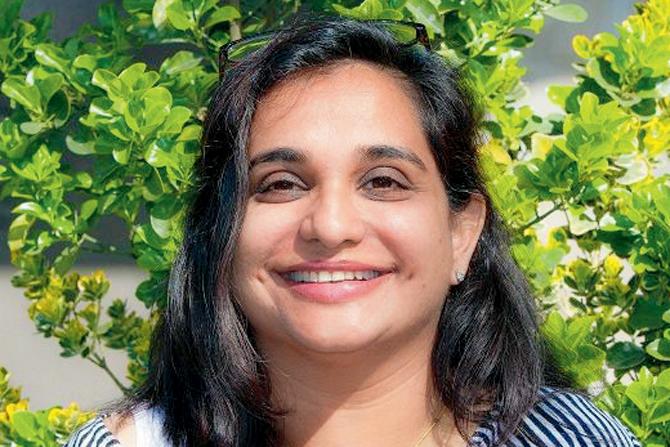
In June 1996, Jeroo Billimoria founded India's first 24-hour emergency telephone service for children called the Childline India Foundation. Open to abused domestics, drug addicts and homeless street kids, Childline was conceived by the former teacher at TISS, who roped in the government as a partner. Over time, it collaborated with UNICEF and the British High Commission.
Writers' raaj

The 1990s marked an optimism around Indian writing in English after several works received recognition in the West, including Rohinton Mistry's Such a Long Journey, which was shortlisted for the Booker. In 2010, however, it was banned after a protest by the Shiv Sena, and withdrawn mid-term from the University of Mumbai syllabus. Vikram Chandra published his first novel, Red Earth and Pouring Rain, in 1995 that won the Commonwealth Writers Prize (CWP) for Best First Book, and when he published Love and Longing in Bombay in 1997, it went on to win the CWP for Best Book (Eurasia region). In 1993, Salman Rushdie won the special Booker of Bookers prize — commemorating the organisation's 25th anniversary.
Stop and listen
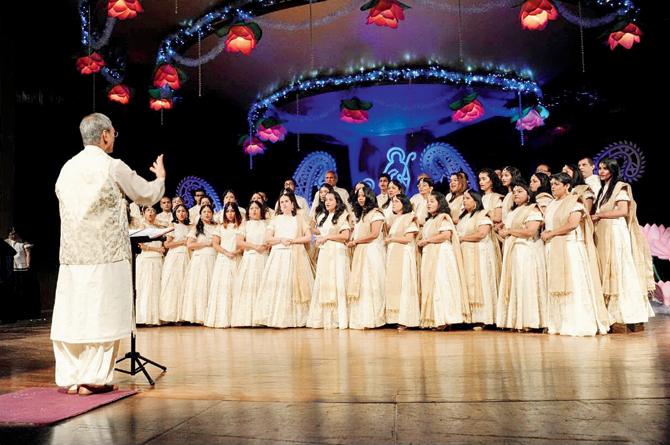
In 1995, the Stop Gaps Ensemble became the first Indian group to be invited to the prestigious Festival de Chant Choral de Nancy in France. The choral group, founded by Alfred D'Souza, in 1984, shone at the festival, and the group received requests for several encores, and got standing ovations, critical acclaim and rave reviews. In December 1998, they became the only Indian choral group to be invited to perform in Israel at the closing celebrations of Israel's 50th anniversary of Independence.
English theatre goes real
"Rahul da Cunha has given Indians something that is all their own, something that they can embrace and something that is relevant to their cultural ethos," went a line in this paper about Rage theatre group's 1996 landmark production, I Am Not Bajirao. The play was the story of two men sitting on a bench at Dadar's Five Gardens, grappling with the inevitable truth of ageing. It changed the way English was spoken on stage. The play ran for 10 years, and even sold tickets in black, and gave Indian cinema Boman Irani.
Tales about Leo's
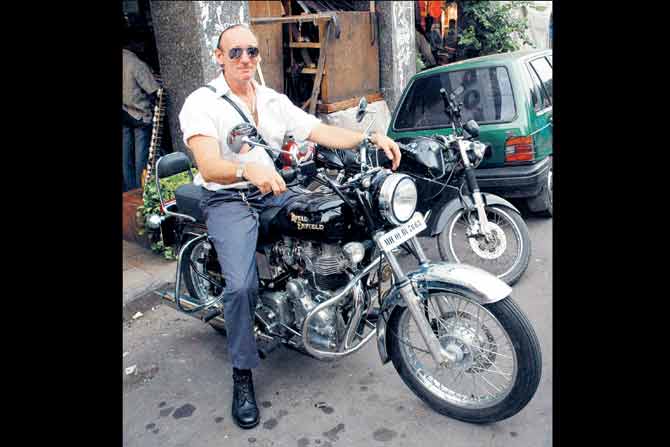
After fleeing Australia's Pentridge Prison in 1980, Gregory David Roberts reached Mumbai on a forged passport. A convicted bank robber and heroin addict, he lived in the city for 10 years until he was caught in Germany and extradited to Australia. He wrote Shantaram, a fictionalised account of his life that captured the intricacies of the city. It was here that the iconic Leopold Cafe found mention as a place where he spent much of his time. After the book became a hit in 2003, tourists flocked to the café. But that changed in 2008 after the 26/11 terror attacks, where 10 people were killed. Roberts wrote an open letter to his readers, asking them not to lose faith in the city.
Jab pilates meets Bollywood
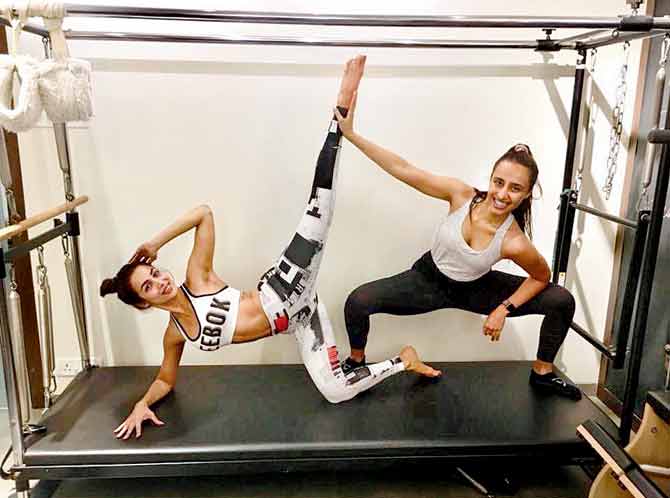
Pilates gained popularity in the city, and then the country, when in 2012, Bollywood celebs and sports personalities like Katrina Kaif and Kareena Kapoor Khan promoted it on their social media. It is inching closer to finding as big a fame as yoga.
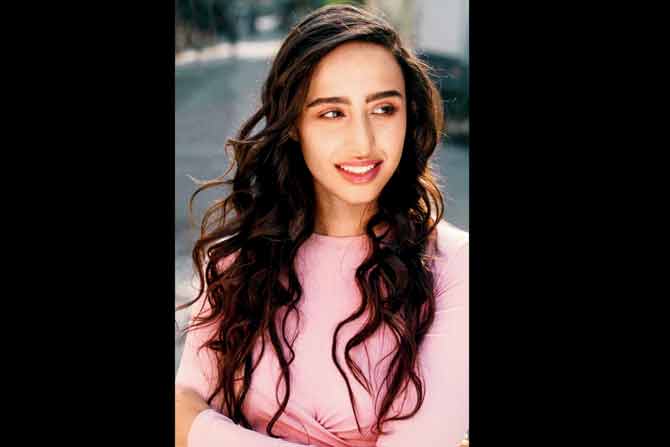
The organic foods revolution
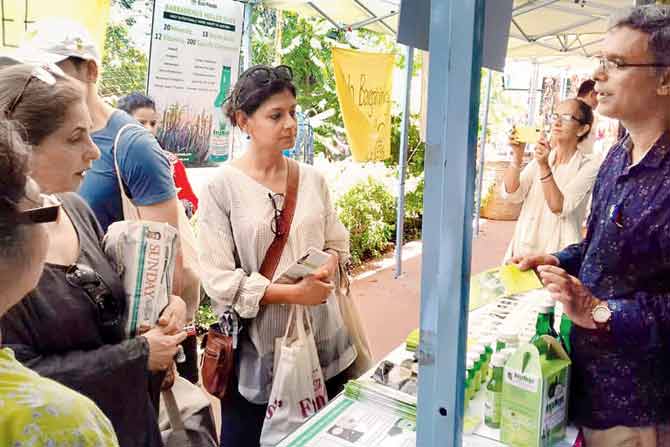
In 1990, Kavita Mukhi started Conscious Foods to promote natural and organic eating. Two decades later, she started the Farmers Market in Bandra in 2010, which has blossomed into a Sunday go-to for many Mumbaikars looking to change their lifestyle into a sustainable and responsible one. What is now commonplace, begun with Mukhi's concerted efforts, and kept growing as others joined in, including Samar Gupta of Trikaya Agriculture who made exotic organic veggies available to the average Mumbaikar. With the availability of produce came farm-to-fork eateries like Nico, Masque, Sequel, The Table, and The Kitchen Garden.
City theatre looks West
It was in April 2006 that the first British Council-commissioned Indo-UK theatre production was staged in four cities in India. Directed by Tim Supple, this was a truly South Asian production of Shakespeare's Midsummer Night's Dream using five Indian languages, Sinhalese and English. The play then travelled to Britain for three months, and in a way, paved the way for many international collaborations.
Symphonic high
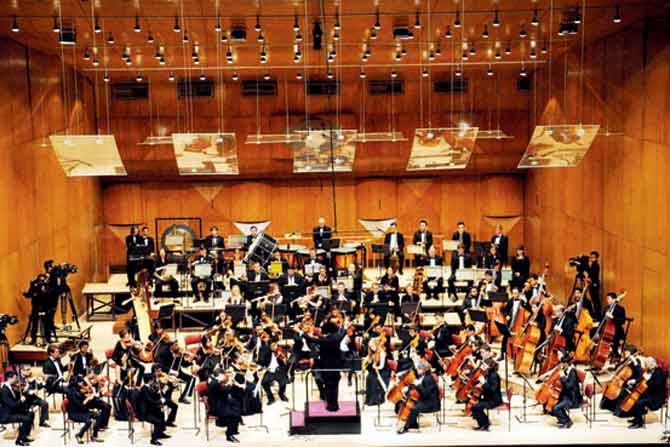
In 2006, India got its first and only professional orchestra in the Symphony Orchestra of India, founded at the behest NCPA chairman Khushroo N Suntook and internationally-renowned violin virtuoso Marat Bisengaliev. Since then, the orchestra has serenaded Mumbai's western classical music connoisseurs and performed at iconic venues in Europe. As a corollary towards strengthening this music tradition in India, The SOI Music Academy was launched in 2012, to offer an advanced level of training to young talent.
Youth theatre movement is born
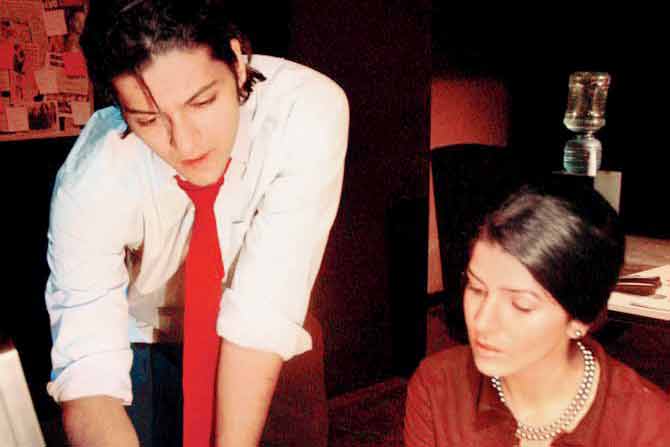
It was in 1999 that five college friends — Quasar Thakore Padamsee, Arghya Lahiri, Chris Samuel, Nadir Khan and Toral Shah — got together to start Thespo, an initiative to showcase and celebrate the best youth theatre in India. It began as an evening of three one-act plays, but the first decade of the new millennium saw it grow into India's biggest youth theatre movement. It continues to bring more cities and towns across India in its fold.
Mumbai, the page turner
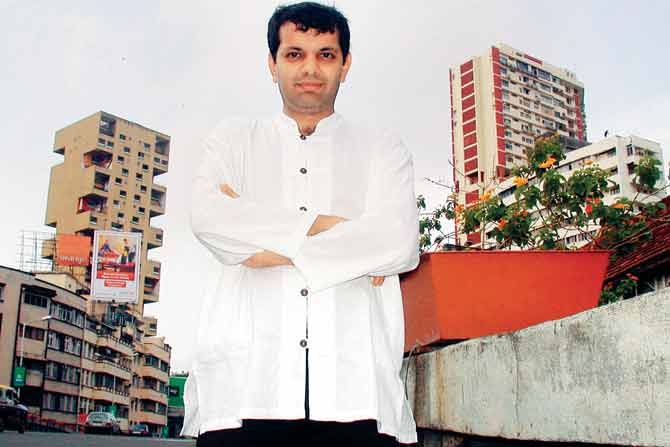
The narratives of those writing about the city in the 2000s snapped their dependency on the West. Books from the city published in this decade included Suketu Mehta's Maximum City, a Pulitzer finalist in 2005. Murzban Shroff's Breathless in Bombay released in 2008 and caused a kerfuffle for objectionable content. The beleaguered author even received international support. At the end of the decade, in 2010, Gyan Prakash published Mumbai Fables on which Anurag Kashyap's Bombay Velvet was based.
Regional gains
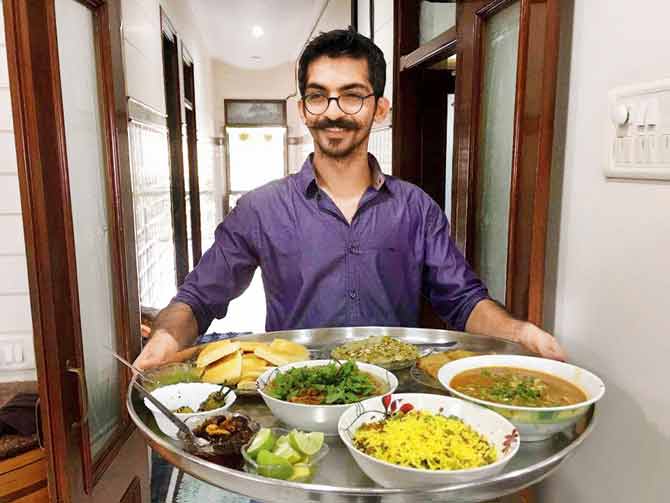
In 2013, a little-known venture called Meal Tango launched operations and offered home-cooked meals at dirt cheap prices. It didn't take off, but in many ways, it was the precursor to the popular home-dining players at Authenticook. Then, between 2014 and 2015, a slow churn began, as Munaf Kapadia launched The Bohri Kitchen, while home chefs Gitika Saikia from Assam and Ananya Banerjee from Bengal acquainted Mumbaikars with the rich diversity of home-cooked food. This led foodies into the world of regional cuisine, and by 2017, Mumbai saw the launch of a slew of regional restaurants, including those that serve authentic Sindhi and Tamilian food.
Live music finds multiple homes
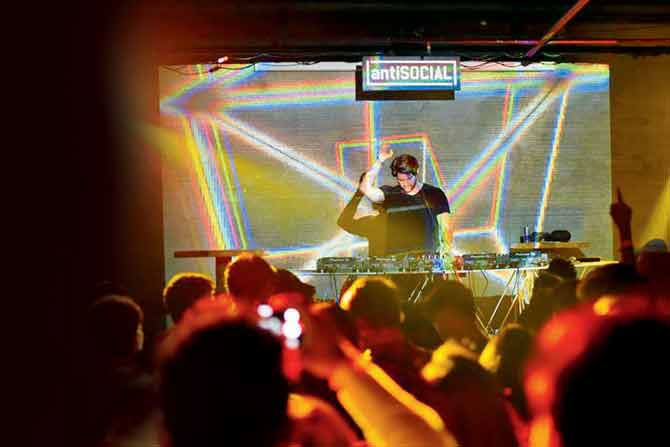
In 2016, India's most beloved live music venue, Blue Frog, bid adieu after a stellar run. For a while, antiSOCIAL filled in ably, but shut in 2017 for violating fire safety rules. However, the city's music scape got a shot in the arm by early 2018, when promoters and brands repurposed Mahalaxmi's Famous Studios' various rooms and the Great Eastern Mills in Byculla to host incredible gigs.
Everyone expresses freely
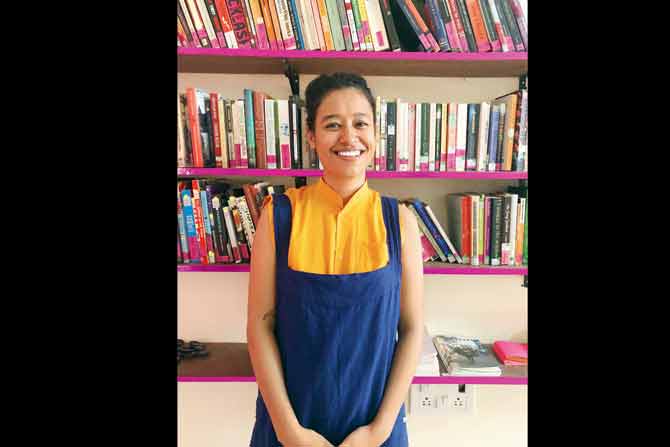
Many community movements have defined the city's literary landscape in the last decade. The Yalgaar Sanskrutik Manch, a 15-member Mumbai-based group of artistes and activists that was formed in 2016, started using lok-shahiri to promote Dalit literature. To build more inclusive physical spaces, Himanshu S and Aqui Thami set up Bombay Underground in 1999 and subsequently Dharavi Art Room. This year, Thami set up a feminist library in Bandra.
By Dalreen Ramos, Snigdha Hasan, Shunashir Sen, Suman Mahfuz Quazi, Karishma Kuenzang and Fiona Fernandez
(Here's thanking the following for spending precious time with team mid-day to share thoughts on cultural and F&B landmark moments that defined the last four decades: Benjamin Gilani, Shernaz Patel, Yuki Ellias, Faezeh Jalali, Astad Deboo, Louiz Banks, Meher Castelino, Brian Tellis, Uday Benegal, Kenneth Lobo, Dr Mariam Dossal, Vikas Dilawari, Meghna Pant, Menka Shivdasani, Murzban Shroff, Shiamak Davar, Shadab Durazi, Rujuta Diwekar, Namrata Purohit, Riyaaz Amlani, Gauri Devidayal, Karishma Sakhrani and Kunal Vijayakar)
Catch up on all the latest Crime, National, International and Hatke news here. Also download the new mid-day Android and iOS apps to get latest updates
 Subscribe today by clicking the link and stay updated with the latest news!" Click here!
Subscribe today by clicking the link and stay updated with the latest news!" Click here!






